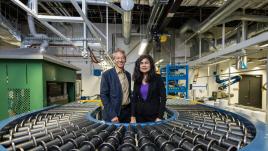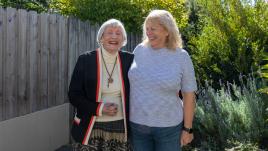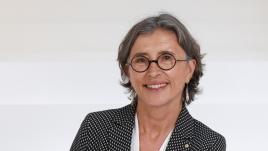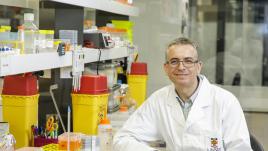Going far by going together: The power of community giving
Whether it’s helping to change a person’s life, driving innovative new health treatments, or saving endangered desert critters, we celebrate the tremendous impact of community giving.
At UNSW, we appreciate every gift to our causes, and it is always incredibly inspiring to see how our donor community joins forces to have such a lasting impact. Philanthropic crowdfunding is a highly valuable tool for our University, and one which allows all members of the UNSW community, whether students, alumni, industry partners or friends, to help make a tangible and positive difference.
A life of her own design: Jesca’s scholarship story
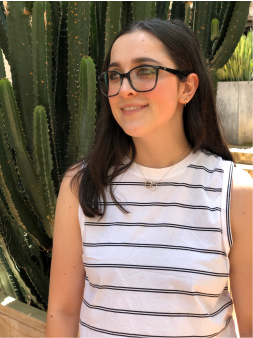
Jesca graduated from UNSW with a Bachelor of Design (Honours). She was able to complete her studies thanks to the support of the President and Vice-Chancellor’s Equity Scholarship.
This particular scholarship opportunity is made possible thanks to funding generously provided by UNSW alumni donors through the UNSW Impact Appeal. Growing up on a farm in a small country town, Jesca never considered a career in design until she began researching degree programs, and was drawn to the broad skillset offered by UNSW’s Bachelor of Design.
“Museums, studios and galleries aren’t widely accessible where I’m from. I didn’t have any family members in these careers, so I decided to move my life to Sydney and jump into design on my own,” says Jesca.
With the farm facing drought, Jesca’s family wasn’t in a position to support her move to Sydney. As a rural student, she was successful in her application for the scholarship, which provides recipients $5,000 annually for the duration of their degree.
“The scholarship meant that I could focus entirely on my studies during my time at UNSW. I’m extremely grateful,” she says. “It truly eased the burden of my accommodation fees. It relieved a lot of financial and emotional pressure, and I was able to put everything I had into my degree.”
After graduating, Jesca completed an internship at the Ministry of Sound before securing full-time work at a Sydney design agency, Toben.
Inspired to change lives: Zahra’s ASPIRE story
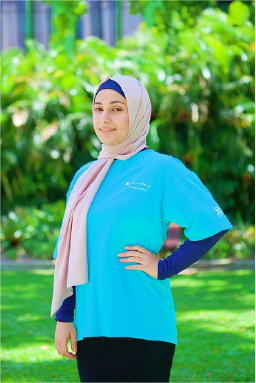
Meet Zahra, a student volunteer for ASPIRE – UNSW’s award-winning educational outreach program. ASPIRE works across 54 of the most disadvantaged schools in New South Wales, with generous support from UNSW’s philanthropic community.
As an ASPIRE Ambassador, Zahra helps to facilitate student workshops designed to support students in accessing higher education, and provide information that will help them thrive in a university environment.
“Knowing about university shouldn’t be a privilege, and many students rarely leave their community so their life experience is very limited. ASPIRE opens up a world of possibilities for them,” says Zahra.
Zahra wants to acknowledge generous donors from UNSW’s staff, alumni and community for their support of ASPIRE and for the great impact they are enabling. In particular, Zahra is grateful for the program that helped her realise her joy in uplifting others through education.
“It wasn’t until I joined ASPIRE that I found my passion for teaching. As soon as I became an ambassador I fell in love with teaching, and realised how you can impact students in such a positive way,” she says.
“I want to say thank you, so much, for supporting the program that has helped so many. A donation towards ASPIRE is a long-term investment in Australia’s future, so the impact of your support can last a lifetime.”
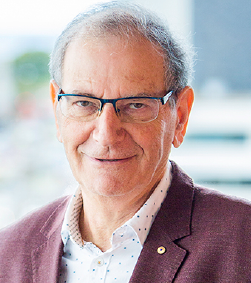
Delivering a continued legacy of health innovation
In 2019, the Kirby Institute at UNSW paid tribute to the pioneering work of its inaugural director by launching the David Cooper Memorial Fund.
The late Scientia Professor David Cooper AC was a highly respected HIV clinician and internationally renowned researcher, and served as the director of the Kirby Institute at UNSW for 32 years. Sadly, Professor Cooper passed away in March of 2018, but through his ground-breaking collaborative research that saved countless lives across the world, he will be remembered forever.
“The David Cooper Memorial Fund was established to carry forward David’s incredible legacy, and fund research and activities that will expand access to infectious disease treatments, preventions and cures,” says current Director of the Kirby Institute, Professor Anthony Kelleher.
In continuing Professor Cooper’s vision of equitable access to infectious disease prevention and treatments, the fund’s proceeds will support translational research as well as the new David Cooper PhD Scholarship. This opportunity will help a committed postgraduate student grow their research capabilities, while advancing knowledge of infectious diseases.
“We are so grateful for the support we’ve received so far, and are thrilled to announce we will be launching a David Cooper Scholarship Program in 2020,” adds Professor Kelleher.
“This is just one small part of how the fund will ensure that Professor Cooper’s commitment to improving the health of marginalised populations continues long into the future.”
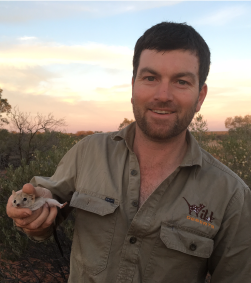
Wild Deserts (image: Rebecca West)
Support for where the wild things are
The past year saw the launch of a crowdfunding campaign to support ‘Wild Deserts’ – a project to reintroduce seven locally extinct mammals to Sturt National Park.
Wild Deserts represents an exciting partnership between UNSW Science and Ecological Horizons, in collaboration with Taronga Conservation Society Australia and the NSW Department of Planning, Industry and Environment. Since its inception, the project has made huge strides to understand, restore and promote desert ecosystems.
The team, led by leading environmental scientist Professor Richard Kingsford, has built 40 kilometres of specialised fences and completely eradicated feral predators like rabbits, cats and foxes from the 4,000 hectares within. They are now working to expand the project into a ‘Wild Training Zone’ in the Strzelecki Desert. This 10,000+ ha zone will allow space where small mammals can be trained to co-exist with low levels of feral predators in hopes to reclaim their desert domain.
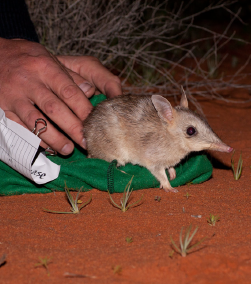
“Our innovative research is leading the world in this area. This is the ‘holy grail’ for reintroductions around the world, taking Australia to the next step,” says Dr Reece Pedler, Project Coordinator.
“In a world where there is sometimes overwhelmingly negative news on the state of the environment, this project offers an opportunity for people to contribute by donating funds that will result in positive environmental action. Wild Deserts is extremely grateful to the individuals and organisations that have donated.”
This article originally appeared in the 2019 UNSW Donor Impact Magazine.





